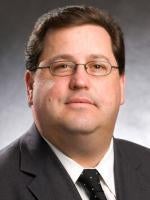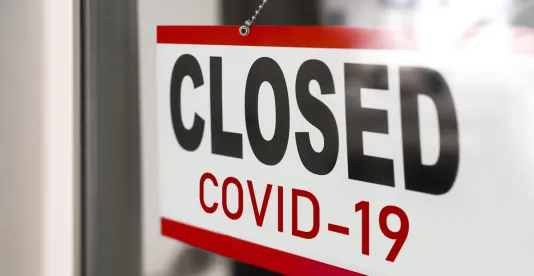The economic situation for small businesses in America is dire. Following the widespread social distancing and stay-at-home orders, 7.5 million small businesses are now at risk of closing their doors permanently within the next several months if the coronavirus pandemic restrictions continue.
The situation has business owners searching for ways to keep their operations afloat. The CARES Act, for example, promises more small business support in its new aid package. This relief, however, has been slow to make its way to business owners.
Many business owners have also filed insurance claims under their business interruption coverage. Insurance carriers have responded by consistently denying those claims, taking the position that the government ordered closure of businesses due to the coronavirus does not trigger the business interruption coverage in their policies. A number of businesses across the country have been challenging the insurance carriers’ position by taking their fight to court.
Case Overview
On April 27, Al Pastor, Stove and Tap, and Milkboy – two restaurants and a bar, respectively – in Philadelphia filed a proposed class-action lawsuit against Hartford Underwriters Insurance Co. and The Cincinnati Insurance Co. In addition, Laudenbach Periodontics and Dental Implants Ltd., a Philadelphia-based periodontics practice, filed an individual lawsuit against Liberty Mutual Insurance Group. The basis for these lawsuits? Denial of their business interruption insurance claims by their carriers.
The plaintiffs in these cases had “all-risks” insurance policies that contained limited exemptions, which the insurers argue should not apply to the extraordinary coronavirus situation. Additionally, they contend that their insurance carriers wrongly denied their claims of lost business due to “civil authority” orders requiring non-essential businesses to shut down to slow the spread of COVID-19.
According to the class action lawsuit, the stay-at-home orders issued by government authorities, as opposed to the virus itself, functioned as a blockage that prevented businesses from operating under civil authority coverage. This, the lawsuit argues, constitutes a ‘covered cause of loss.’
Similarly, Laudenbach Periodontics argues that their insurer wrongly denied their claim on the basis of the virus exemption in their policy. Like the class action lawsuit filed by Al Pastor, Stove and Tap, and Milkboy, Laudenbach argued that their insurance carrier overlooked the civil authority coverage that was part of their policy.
Breaking Down The Issues
How does all of this fit into business interruption coverage?
Business interruption (BI) insurance is typically held by business owners as part of their commercial property insurance. It is intended to protect against economic losses that occur when insureds cannot run their business due to a “physical loss or damage.” The insurance typically covers lost revenue, business carrying costs like mortgage or lease payments, payroll, and taxes, as well as other expenses that would not be incurred but for the shutdown of the insured’s business.
Whether or not BI insurance is “triggered” by the events surrounding the coronavirus pandemic will be one of the central legal issues in the pending and future lawsuits. This is because BI coverage is only triggered when there is a “physical loss or damage” that caused or lead to the interruption of the insured’s business operations.
The term “physical loss or damage” is not defined in the typical BI policy. Natural disasters, or property damage causing accidents, such as fires, explosions, and sewer backups that result in the necessity of shutting down an insured’s business, are common BI insurance triggering events. The various state government orders to close businesses due to the COVID-19 pandemic, according to insurance carriers, are not events that meet the requirement of a “physical loss or damage” to trigger BI coverage. Insureds, however, are arguing that the impetus of those orders, i.e. the presence of the coronavirus being spread by contact via surfaces found in a typical business, is the exact kind of “physical loss or damage” that triggers BI insurance coverage.
This fight over what constitutes “physical loss or damage” will be central to whether BI insurance will be available for losses resulting from this pandemic.
What Comes Next?
Small business owners around the country, especially those in the service and hospitality industries, are going to court after insurance carriers denied their claims. It remains to be seen how courts will rule in these cases, but in the meantime, business owners are being encouraged to thoroughly review their policy language so they have a clear picture of what is and what is not covered.
Lawmakers in New Jersey, New York, Louisiana, Massachusetts, Pennsylvania, and Ohio are weighing legislation that will either retroactively declare BI coverage for coronavirus losses, regardless of contrary policy language, or will legislatively define disputed terms like “physical loss or damage” to favor insureds. Insurance companies are vigorously fighting these efforts, claiming constitutional protections and raising the specter of industry bankruptcy.



 />i
/>i
